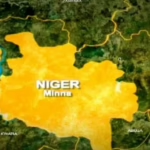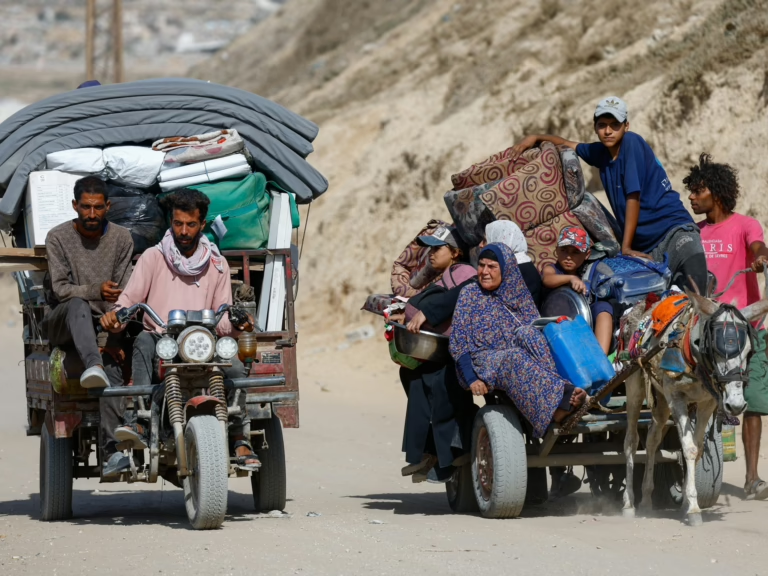Global responses have shown cautious optimism following Hamas’s reaction to President Trump’s peace proposal, signaling a possible shift in the ongoing conflict between Israel and Gaza.
International observers, including influential mediators, have expressed hopeful sentiments after Hamas partially embraced the 20-point peace initiative put forth by U.S. President Donald Trump aimed at ending the prolonged conflict in Gaza. This development raises the possibility of halting the devastating two-year-long hostilities.
On Friday night, Hamas declared its willingness to free all remaining hostages and transfer authority to other Palestinian factions, while indicating that several aspects of the plan still require further dialogue.
Reports from Israeli news outlets on Saturday revealed that Prime Minister Benjamin Netanyahu was reportedly taken aback by Trump’s insistence that Israel “immediately cease bombing Gaza” following Hamas’s positive response, and by the assertion that Hamas is prepared to pursue “lasting peace.”
Subsequently, Netanyahu’s office confirmed that the Israeli military is “ready to commence the initial phase of the Trump plan aimed at securing the release of all hostages.”
Al Jazeera’s correspondent in Gaza noted a significant reduction in Israeli airstrikes overnight. However, an Israeli drone strike targeted a tent in al-Mawasi, southern Gaza, resulting in the deaths of two children and injuries to several others, according to sources at the Nasser Medical Complex.
These casualties mark the first confirmed Palestinian fatalities since Trump ordered an immediate halt to Israeli bombardments after Hamas’s favorable reply to the peace proposal.
Netanyahu’s office also emphasized ongoing collaboration with the U.S. president to conclude the conflict “in line with Israel’s outlined principles,” suggesting that Israel remains firm on the original terms of the White House plan.
Nonetheless, critical issues persist, notably Hamas’s omission of any commitment to disarmament-a central Israeli demand embedded in Trump’s proposal.
Here is a summary of reactions from various nations and organizations:
Qatar
The Gulf state, instrumental in Gaza negotiations, welcomed Hamas’s declaration of agreement with President Trump’s plan and its readiness to release all hostages as part of the outlined exchange framework.
Foreign Ministry spokesperson Majed al-Ansari expressed support for the U.S. call for an immediate ceasefire to ensure the safe and swift liberation of hostages and to swiftly end the bloodshed in Gaza.
Egypt
Egypt, a pivotal regional actor, expressed hope for a “constructive development” and pledged to collaborate with Arab nations, the U.S., and European partners to establish a lasting ceasefire in Gaza.
Turkey
The Turkish Foreign Ministry described Hamas’s response as “an opening for the prompt establishment of a ceasefire in Gaza.”
Palestinian Islamic Jihad
The Palestinian Islamic Jihad (PIJ) stated that Hamas’s position reflects the consensus among Palestinian factions, noting their responsible participation in the consultations leading to this decision.
United Nations
UN Secretary-General António Guterres welcomed Hamas’s statement and urged all parties to “capitalize on this opportunity to end the tragic Gaza conflict,” according to spokesperson Stéphane Dujarric.
India
Indian Prime Minister Narendra Modi commended President Trump’s leadership in advancing peace efforts in Gaza, highlighting the “significant progress” marked by indications of hostage releases. Modi reaffirmed India’s strong support for initiatives aimed at achieving a just and enduring peace.
Malaysia
Malaysian Prime Minister Anwar Ibrahim adopted a more measured stance, acknowledging imperfections in the U.S. peace plan and expressing disagreement with several points. Nonetheless, he emphasized the urgent priority of saving Palestinian lives and noted that Arab and Islamic nations’ endorsement represents a collective effort to halt violence, oppose displacement, and enable Gazans to return to their homeland. He affirmed that the release of hostages and a ceasefire are now within reach.
France
French President Emmanuel Macron echoed the hopeful tone, stating on social media that the imminent release of all hostages and a ceasefire in Gaza present a critical opportunity for peace. He pledged France’s full engagement alongside the United States, Israel, Palestine, and international partners, and expressed gratitude to President Trump and his team for their dedication to peace.
Germany
German Chancellor Friedrich Merz described the plan as “the most promising path to peace” in the conflict and affirmed Germany’s full support for Trump’s appeal to both sides.
United Kingdom
UK Labour leader Keir Starmer hailed Hamas’s acceptance as “a meaningful advancement” and called on all parties to implement the agreement promptly.

















